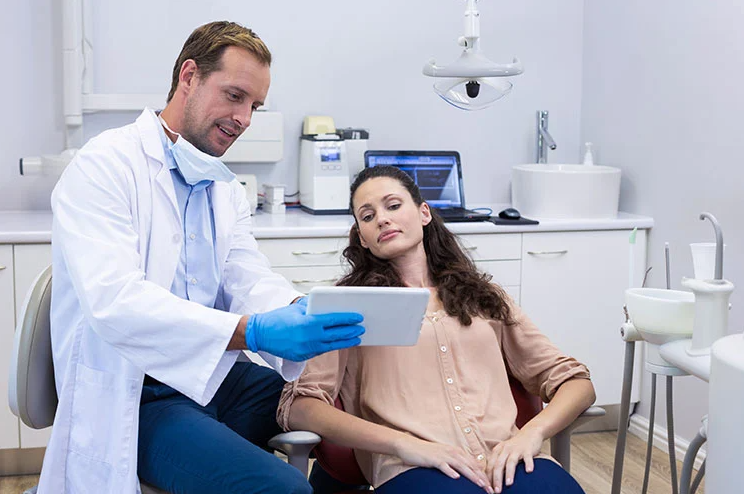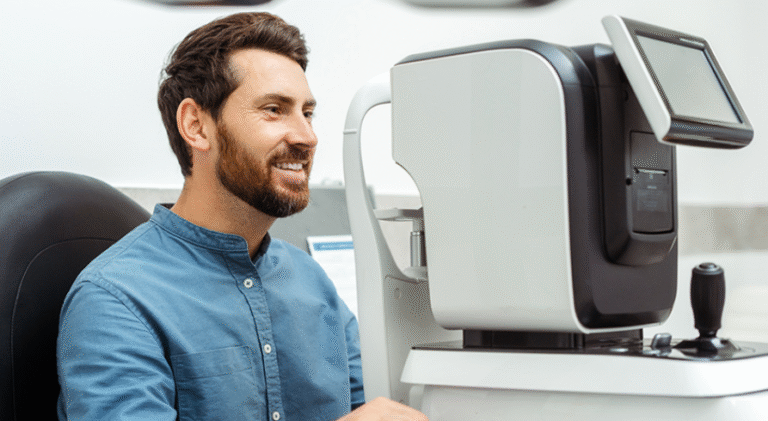Is it Safe to Get Plastic Surgery in New Orleans during Pregnancy?
New Orleans presents dangerous conditions for mothers who are pregnant as well as undergoing plastic surgery procedures. Pregnancy transforms blood circulation together with altering immune functions so recovery becomes more challenging after surgical procedures. Experts, including a New Orleans plastic surgeon from Sadeghi Center for Plastic Surgery, recommend waiting until after childbirth to undergo any surgery to ensure safety and optimal results. This article explains why this is recommended and provides other options for pregnant women.
Plastic Surgery During Pregnancy: Safety?
The combination of plastic surgery with pregnancy poses medical threats that harm both the expectant mother and her developing fetus. Sclerotherapy represents one of these operations which doctors can perform in specific cases however they must refrain from performing it during the first trimester and the concluding pregnancy weeks. The use of standard sclerotherapy medication did not present an elevated fetal risk according to research published in 2015 although each medical condition remains exclusive.
Usual anesthetic medications such as lidocaine and tetracaine present minimal risks to the developing fetus while in the first stages of pregnancy although scientists have organized queries regarding placental reactions. The recommended timeframe to receive chemical peels is between six months and one year after child delivery. Seeking guidance from a board-certified surgeon will enable decision-makers to place health needs first when making choices related to their condition.
See also: Maximize Efficiency with Employee Time Tracking Software
What Risks of Plastic Surgery Exist?
Proof of understanding about specific dangers affecting mothers and babies stands essential for pregnant women having cosmetic surgery. The physical alterations during pregnancy greatly impact operation results for both maternal security along fetal protection. People who understand these risks become able to make responsible decisions about their cosmetic surgery.
Fetal Health Risks
Plastic surgery that is not an emergency presents health dangers for the developing fetus. The fetus experiences harm from drugs and anesthesia when it passes through the placenta. Damage to the fetus could occur when lidocaine is injected into a major artery because both high doses and major artery injection have the potential to harm fetal heart and nervous systems.
Pregnancy-related hormonal changes trigger both heavy bleeding and slower wound healing throughout the pregnancy term. Prolonged recovery times may block pregnant women from sustaining themselves along with their children. The probability of surgery increases when patients are afflicted by medical disorders like diabetes alongside elevated blood pressure.
Maternal Health Risks
The medical procedures performed during pregnancy create serious dangers for the mother and child which impact the way anesthetics work. Local anesthetic drugs including bupivacaine and lidocaine cause methemoglobinemia leading to decreased oxygen-carrying capacity of blood.
Anesthesia-related complications can be prevented by watching the mother closely when she is nearing the anesthesia stage. Proper examination and scheduling of surgery operations help prevent blood pressure elevation and other medical conditions.
Pregnancy’s Physiological Changes Matter
Health professionals should evaluate pregnancy-related risks against the substantial body changes that affect both treatment safety and surgical results. These physiological alterations produce substantial effects on the way the body reacts to medical procedures which significantly explain the entire healing process.
Impact on Surgical Outcomes
During pregnancy, the human body experiences changes such as enhanced blood volumes together with hormonal fluctuations which affect surgical outcomes. People who experience heightened skin flexibility often obtain unsatisfactory results from liposuction and tummy tuck surgeries.
Women who experience weight changes after pregnancy need to establish realistic operation targets because pregnancy makes results unpredictable through body transformations.
Anesthesia Considerations During Pregnancy
Pregnant patients require special attention to anesthesia decisions because these decisions must protect both mother and baby during their delicate state. The impact of anesthesia on patients turns out differently because pregnancy both modifies blood volume and hormonal states.
Regional anesthesia together with local anesthetic methods is preferred when general anesthesia becomes unavoidable for pregnant women. The assessment must occur before anesthesia administration because it needs both risk evaluation and customized procedures.
Post-Surgery Recovery Challenges
Recovery while pregnant is quite different. Physical problems, such as mobility issues, can extend recovery time. Rest and assistance are important since the body will give precedence to the fetus overhealing from the surgery.
New Orleans Guidelines and Recommendations
New Orleans has strict medical guidelines on surgery to safeguard patients. Local health departments verify that facilities meet cleanliness, licensing, and qualified surgeon criteria. Accredited facilities concentrate on risk minimization, particularly for at-risk groups such as pregnant women, accommodating surgery solely for life-threatening issues and prioritizing health over aesthetics.
Local Medical Standards
Surgeons require discussion of pregnancy risks with them so that appropriate guidelines and precautions are provided, as well as attempts to minimize complications. Procedures and safety protocols may also be asked about.
Consultation: What to Discuss
Plastic surgery procedures that take place during pregnancy require proper ethical evaluation. Surgeons must ensure both maternal safety along fetal well-being remain protected. The patient needs to understand the risks and benefits through transparent information to grant informed consent. Procedures that do not require surgery along with home skin routines and skin treatment services present lower safety risks.
Ethical Considerations
New mothers can use moisturizers along with compression clothing as non-surgical ways to adjust their bodies after pregnancy. A woman needs to wait six months after breastfeeding for her body to recover before getting any medical procedure. The process of waiting enhances results because healing along with natural aging produces better stability.
Alternatives to Surgery During Pregnancy
Since pregnancy surgeries are not normally conducted, non-surgical skin rejuvenation treatments offer a safer and more convenient option for pregnant women. These alternatives reconcile beauty and health without compromising safety. Some of these alternatives are discussed below.
Non-Surgical Options
Temporary relief is gained with non-invasive treatments, which is why safe options such as Botox are often the choice. Feminization fillers add volume and soften fine lines, while hyaluronic acid and vitamin C topicals enhance hydration and elasticity. Occasional facials or microdermabrasion soften the skin. Daily skincare with pregnancy-safe products addresses acne and dryness. Frequent walking promotes health, increases circulation, and reduces swelling or varicose veins.
Delaying Surgery Until Postpartum
Postponing surgery until after giving birth is a major advantage. Pregnancy changes the body, and surgery will be safer after the body has recovered. Procedures such as tummy tucks and breast lifts usually function better when done after the body has recovered. Postponing surgery until after childbirth can minimize complications and aid in recovery. Working with the appropriate professionals can assist in creating a realistic timeline for the patient’s requirements.
Embrace Natural Changes
There are so many changes and growth during pregnancy. Health overlooks encourages self-acceptance. Having a supportive network can help in coping with emotional ups and downs and maintaining a positive outlook during this glorious period.
The Risks of Undergoing Plastic Surgery During Pregnancy in New Orleans
Invasive procedures during pregnancy are dangerous and should be attempted with caution. Most of the plastic surgeons in New Orleans recommend waiting to undergo non-vital procedures after having a baby to protect the parent and child. To improve one’s looks, however, waiting for the child to be born or using minimally invasive techniques normally yields more lasting results. Individual advice must come from a competent expert in New Orleans to determine the best approach. Professional assistance is available for patients to evaluate their options after considering health and safety matters take top priority. Self-investment proves to be the most beneficial decision at all times.
Sadeghi Center for Plastic Surgery
2551 Metairie Rd Suite 100, Metairie, LA 70001
+15046883776






